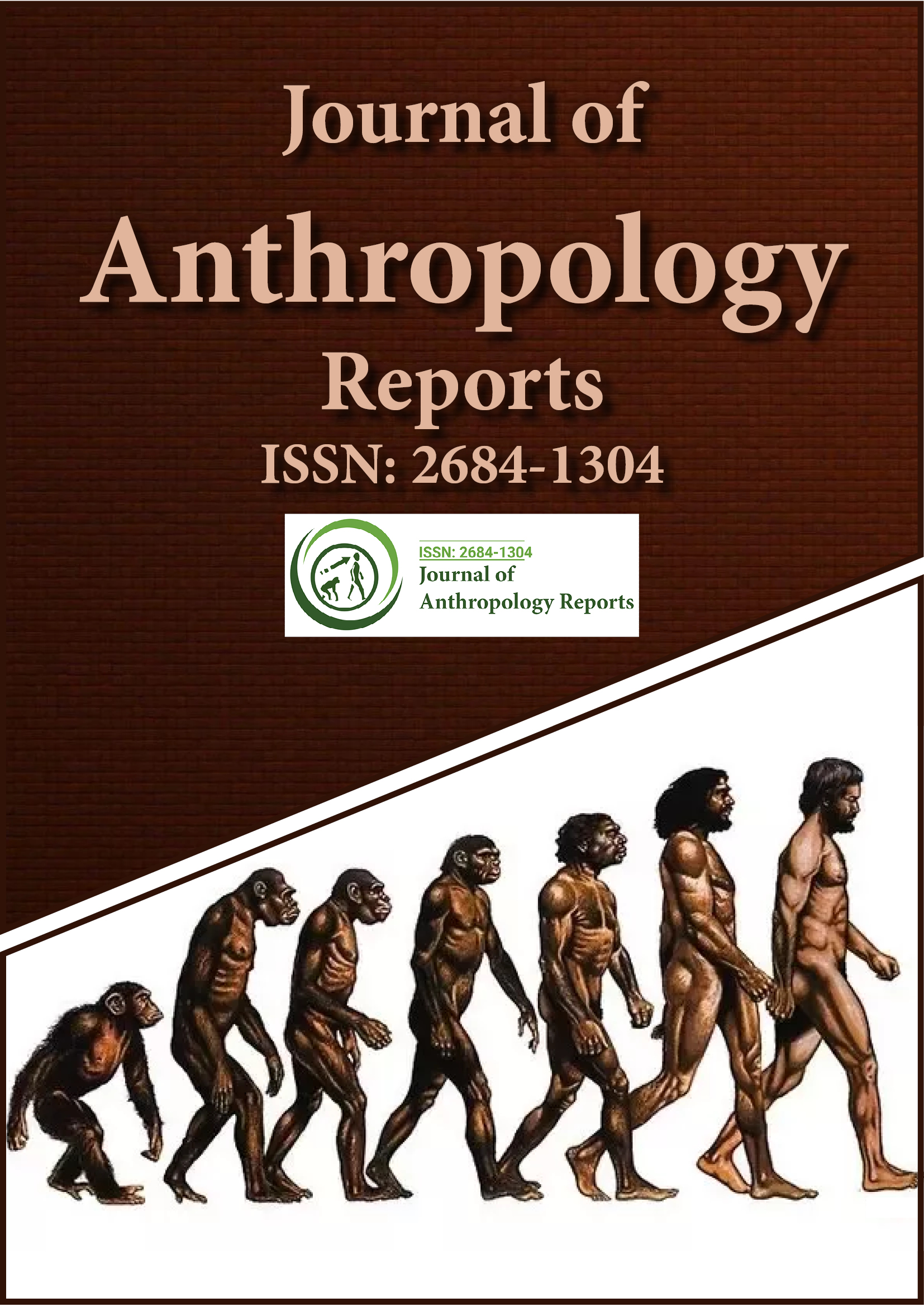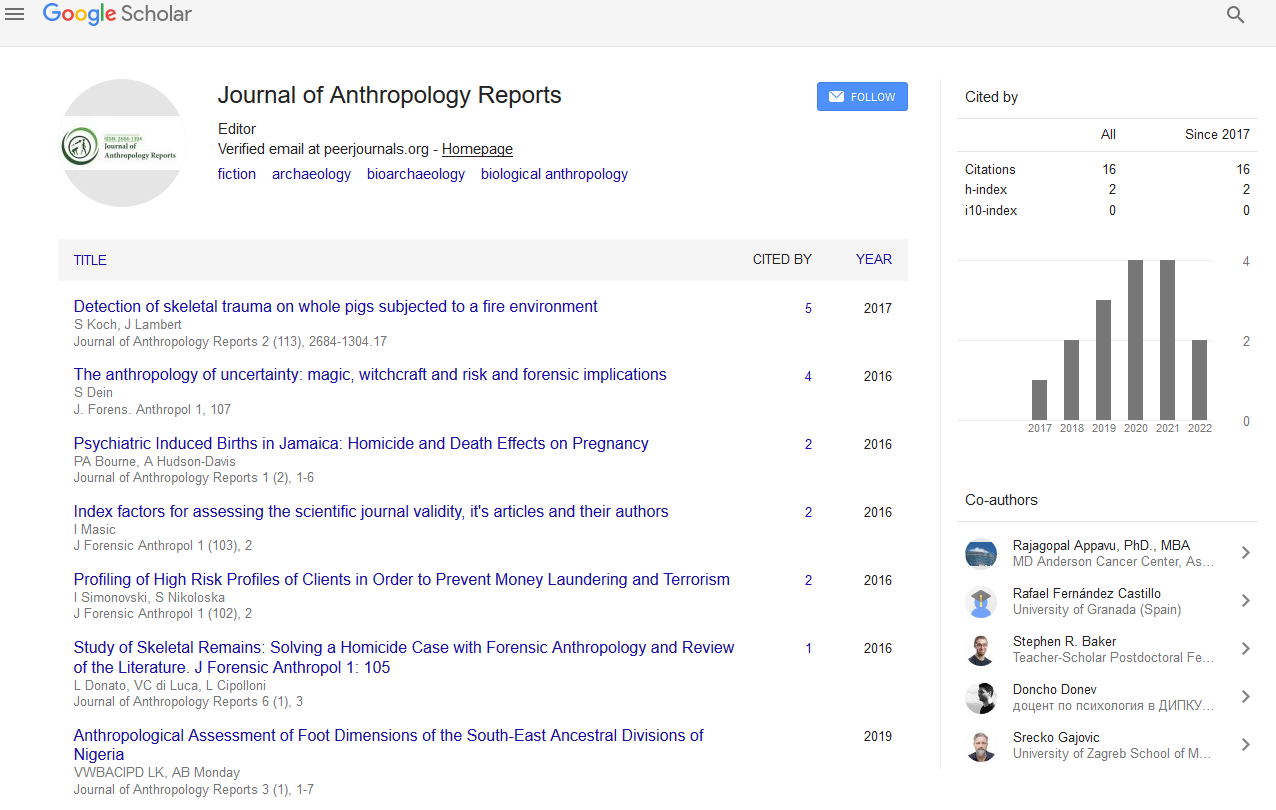Indexed In
- RefSeek
- Hamdard University
- EBSCO A-Z
Useful Links
Share This Page
Journal Flyer

Open Access Journals
- Agri and Aquaculture
- Biochemistry
- Bioinformatics & Systems Biology
- Business & Management
- Chemistry
- Clinical Sciences
- Engineering
- Food & Nutrition
- General Science
- Genetics & Molecular Biology
- Immunology & Microbiology
- Medical Sciences
- Neuroscience & Psychology
- Nursing & Health Care
- Pharmaceutical Sciences
Commentary - (2025) Volume 8, Issue 1
Anthropology of Food: Cultural Meaning and Practices
David Reynolds*Received: 24-Feb-2025, Manuscript No. JFA-25-29397; Editor assigned: 26-Feb-2025, Pre QC No. JFA-25-29397 (PQ); Reviewed: 12-Mar-2025, QC No. JFA-25-29397; Revised: 19-Mar-2025, Manuscript No. JFA-25-29397 (R); Published: 26-Mar-2025, DOI: 10.35248/2684-1304.25.8.220
Description
Food is more than a biological need. It is deeply tied to how people think, relate and act in the context of their everyday lives. Anthropologists have long studied food not only as something consumed for survival but also as a powerful element of identity, memory and belief. Across cultures, meals are social events, recipes are shared knowledge and ingredients carry histories of trade, migration and tradition. The act of eating is rarely just about nutrition it connects people to each other, to their environments and to their heritage.
In many communities, what is eaten, how it is prepared and when it is served reflect long-held customs. Recipes are passed down through generations, often with local adaptations. A simple dish may represent centuries of tradition or the influence of different cultural exchanges. Whether through daily meals or festival food, people communicate who they are, where they come from and how they relate to others. Through food, values such as hospitality, care and respect are made visible.
The role of food in rituals is another area anthropologists examine. Ceremonial meals, offerings to ancestors, or fasting practices all show how deeply food is tied to belief systems and social structures. In some cultures, certain foods are eaten only at specific times of the year or during key life events such as births, weddings, or funerals. These practices help reinforce group identity and ensure that cultural traditions are remembered and repeated over time.
The meaning of a food item often goes beyond its taste or preparation method. Some ingredients carry symbolic significance or are associated with status, purity, or health. For example, rice might be seen as a symbol of life in one culture, while meat may indicate wealth or celebration in another. These meanings vary widely but often influence how foods are ranked, who gets to eat them and under what conditions.
Social class, gender and age also influence food practices. In many households, women take on the role of preparing meals and this labor is often undervalued despite its central role in maintaining family and social bonds. In some regions, men may control the supply of certain foods, reflecting broader systems of power and division of labor. Children and elders may have particular dietary expectations, shaped by health beliefs or cultural respect. Food also plays a part in political and economic relations. Access to certain ingredients can reflect global trade routes or local shortages. Some communities may rely on farming, hunting, or fishing, while others depend on markets or imported goods. These differences affect how people relate to food and the meanings they attach to it.
Urbanization and globalization have brought new challenges and shifts in food practices. Supermarkets, fast-food chains and processed goods change not just what people eat but how they think about time, convenience and value. In some places, traditional meals are being replaced by ready-made options, while in others, there is a renewed interest in local, seasonal and ancestral foods. These trends reflect changing lifestyles and raise questions about health, sustainability and cultural preservation.
Conclusion
The study of food provides a clear lens into the wider world of cultural practice. Every step planting, buying, preparing, eating holds meaning. It speaks to relationships, beliefs, adaptations and everyday choices. Food reflects care, effort, status, change and memory. By looking closely at what people eat and why, anthropologists come to understand much more than just meals they learn about lives, traditions and ways of thinking that shape entire communities. Anthropologists collect information about food through direct observation, conversations and participation. They may spend time in kitchens, markets and fields to understand how food is selected, cooked and shared.
Citation: Reynolds D (2025). Anthropology of Food: Cultural Meaning and Practices. J Anthropology Rep. 8:220
Copyright: © 2025 Reynolds D. This is an open-access article distributed under the terms of the Creative Commons Attribution License, which permits unrestricted use, distribution and reproduction in any medium, provided the original author and source are credited

